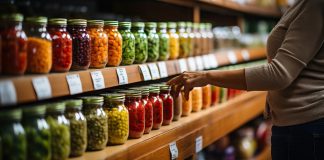Raw vegan diet: less than it seems
Both the patient, a young woman who had recently become an adult, and her mother breathed a sigh of relief. The girl's symptoms, which initially appeared to be heart-related, had other explanations. As they were getting ready to leave, the mother told me, "My daughter hasn't had her period for some time, and we can't find the cause of this problem." I turned...
Fuel for health
Despite often being labelled as the main culprits for weight gain, carbohydrates are actually vital macronutrients, alongside proteins and fats. They provide the body with energy.
Bittersweet
In terms of their effect on health, there is no difference between white and brown sugar. Sugar substitutes should not be consumed indiscriminately either.
The lesser-known story of fats
For decades, fats have been considered unhealthy and have been associated with an increased risk of cardiovascular disease. However, recent research has revealed a more nuanced picture.
Detoxification through the body’s own resources
In antiquity, rituals were used to purify both spirit and body. With advances in technology and the refinement of marketing techniques in recent decades, the idea of purification has been revived in the form of “detoxification,” a concept that capitalizes on people’s fears related to pollution, unhealthy diets, and sedentary lifestyles.
Gluten under the microscope
Only people with specific gluten-related conditions—such as celiac disease, wheat allergy, or non-celiac gluten sensitivity—experience adverse reactions to gluten consumption.
The fresh air advantage
It’s something many of us overlook, yet the research is showing that getting outside is better for us than we might imagine.
How the antibiotic apocalypse can be avoided
“By 2050, AMR could potentially kill one person every three seconds and become a more common cause of death than cancer.”
Dietary supplements: a surprising revelation
By 2030, the global dietary supplements market is projected to surpass US $327 billion, according to Grand View Research (2023). But do these soaring numbers reflect real, measurable benefits—or simply growing consumer enthusiasm?
Plant-based strength
Ancient Greek athletes consumed large amounts of meat, believing that their performance was due to the animal protein it contained. This idea was later strongly supported in the 19th century by the chemist and physiologist Justus von Liebig, who proposed that protein is the main substance for building muscle.
Plant-based and protein-rich
The fear of protein deficiency is one of the oldest and most persistent barriers to adopting a plant-based diet.
What organic labels do and don’t say
The production of organic food has gained increasing importance worldwide, driven largely by consumer concerns over the potential negative health effects of foods grown through intensive, conventional farming methods (Brantsæter, Ydersbond et al. 2017).
Why sleep belongs at the top of your priority list
“If you had asked me that morning, ‘Arianna, how are you?’ I would’ve said, ‘Fine.’ It was really the fact that being depleted, running on empty, had become the new normal for me.”
Depression also affects Christians
The stigma surrounding mental health issues causes many Christians to hide their conditions, resulting in an epidemic of depression, even among pastors, says Sheila Walsh, a Bible professor and internationally renowned speaker.
Health begins with accurate information
A healthy lifestyle starts with acquiring information properly. In a world flooded with information, patients are often confused and overwhelmed by conflicting nutritional recommendations and spectacular promises about proposed diets. In this context, it is essential to assess the validity of information using well-established criteria.


























